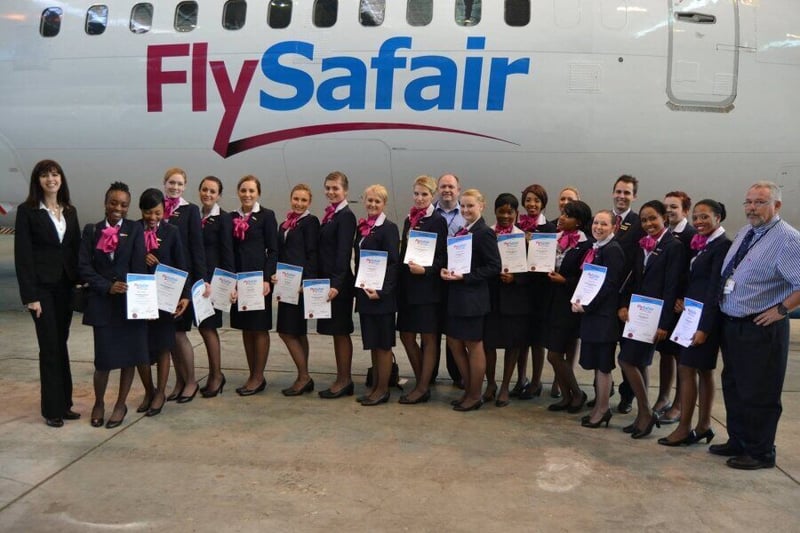
"Chicken or Beef?", the image most often portrayed of flight attendants is of attractive, but dimwitted young people. Nothing could be further from the truth, as discussions with crew from FlySafair reveals that these valued employees are far more than glorified waitresses of the sky.
“People believe our jobs are glamorous and that we aren’t educated, but the truth is, we all have intensive safety training and we are up at around 03:30 in the morning to get ourselves presentable and ready for a day of taking care of our passengers,” says Mavis Mathibela, FlySafair In-Charge Flight Attendant.
She adds that is also their duty to check the safety equipment, do security checks and to make sure the cabin is secure before the plane can take to the skies. “The safety and security of our passengers and crew are our main concern,” she says.
To become a flight attendant you need to follow a six-week intensive course at an Airline Training Organisation. The pass mark for all the components is 90% and includes the exam future flight attendants have to write at the Civil Aviation Authority. Successful candidates will receive a cabin crew licence.
Airlines like FlySafair then provide further on the job training specific to their policies and the type of aircraft that they operate.
A number of components get covered, including a good deal of aviation specific emergency procedures. Another very important component is Aviation Medicine. Flight attendants get trained on how to do CPR; assist with chocking; assist passengers that have fainted or are in shock; diabetic passengers; epilepsy; stroke and the use of a defibrillator.
"We're even trained on how to deliver babies on board if needs be" adds Mathibela.
Every year our flight attendants have to attend Safety and Emergency Procedures and Aviation Medicine training again to keep them competent to be able to deal with any emergency on-board.
Last but not least they also need to be medically fit, do a full medical with an approved medical doctor every 12 to 24 months.
"We at FlySafair encourage everyone to reflect on our conceptions of women in the workplace this Women's Day," says Kirby Gordon, VP of sales and distribution for FlySafair "In this particular example these women are often not recognised appropriately for the very serious and important roles that they play in our everyday lives".
Get new press articles by email
The Pulse Latest Articles
- Education Is The Frontline Of Inequality, Business Must Show Up (December 11, 2025)
- When The Purple Profile Pictures Fade, The Real Work Begins (December 11, 2025)
- Dear Santa, Please Skip The Socks This Year (December 10, 2025)
- Brandtech+ Has 100 Global Creative Roles For South African Talent (December 9, 2025)
- The Woman Behind Bertie: Michelle’s Journey To Cape Town’s Beloved Mobile Café (December 9, 2025)
